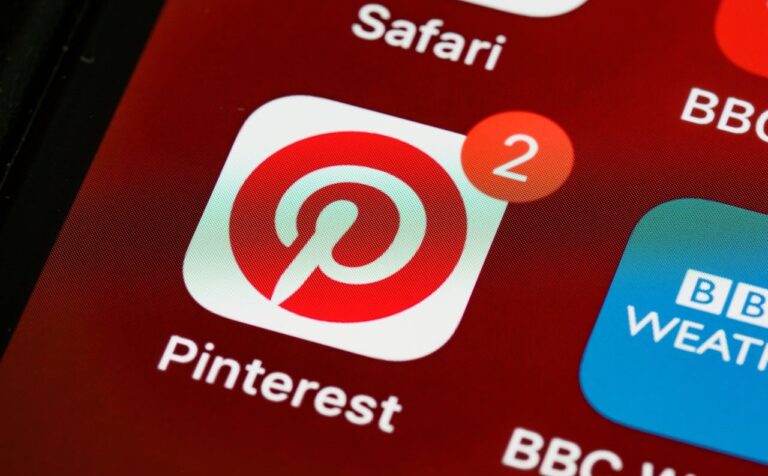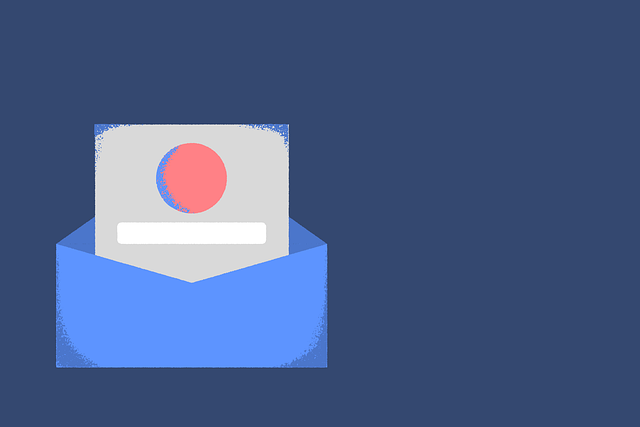
The internet has revolutionized how businesses connect with customers. Whether you’re an entrepreneur, freelancer, or side hustler, internet marketing is now a must-have skill. But here’s the problem: beginners often get overwhelmed. With so many channels — SEO, social media, email, paid ads, affiliate programs — it’s hard to know where to start.
That’s exactly why I created this Internet Marketing 101 guide. You’ll learn what internet marketing is, why it matters in 2026, the main strategies you should focus on, and a clear step-by-step plan to get started.
By the end, you’ll have a roadmap for building a strong online presence and attracting your first customers.
What is Internet Marketing?
At its core, internet marketing (also called digital marketing or online marketing) is the process of promoting products, services, or personal brands online. Instead of relying on traditional methods like TV or print, you use the internet to reach people through search engines, social platforms, and digital content.
The main pillars of internet marketing include:
- Search Engine Optimization (SEO): Ranking on Google so people find you organically.
- Content Marketing: Blogs, videos, podcasts, and infographics that provide value.
- Social Media Marketing: Promoting on Instagram, TikTok, YouTube, LinkedIn, and more.
- Email Marketing: Building relationships with your audience through newsletters and automation.
- Paid Advertising (PPC): Using Google Ads, Facebook Ads, or TikTok Ads to drive traffic.
- Affiliate & Influencer Marketing: Leveraging others to promote your products.
Each of these channels can grow your business. But the key for beginners is not to do everything at once. Instead, start small, master one or two, and expand later.
Why Internet Marketing Matters in 2026
If you’re asking, “Why not just stick to traditional marketing?” here’s why internet marketing is more powerful today:
- Global Reach: Over 5.5 billion people use the internet daily, making it the largest marketplace in history.
- Cost-Effective: Running ads online or writing a blog is far cheaper than a TV commercial or newspaper ad.
- Targeted Advertising: Online platforms let you reach specific demographics (age, interests, location).
- Trackable Results: Tools like Google Analytics show exactly where customers come from.
- Scalability: Internet marketing grows with you — start small, then expand as your revenue increases.
Pro Tip: Even small businesses and solo entrepreneurs can compete with big brands by leveraging niche strategies online.
Step 1: Define Your Goals
Jumping into internet marketing without a clear direction is a recipe for failure. Before creating content or spending money on ads, define your goals using the SMART framework:
- Specific: “Get 1,000 email subscribers in 90 days.”
- Measurable: Use analytics to track progress.
- Achievable: Set realistic targets based on your resources.
- Relevant: Align with your business or career goals.
- Time-bound: Put a deadline on your milestones.
Example: Instead of saying, “I want more website visitors,” say “I want 10,000 monthly website visitors within six months by publishing SEO-optimized blog posts.”
Step 2: Build Your Online Presence
The first step to successful internet marketing is showing up online where your audience spends time. Here’s how to do it:
1. Create a Website
- Use platforms like WordPress, Wix, or Shopify depending on your needs.
- Focus on a clean, user-friendly design.
- Make sure your site is mobile-friendly — over 60% of internet users browse on mobile.
2. Optimize for Search Engines (SEO Basics)
- Research keywords using tools like Ahrefs, Semrush, or Ubersuggest.
- Write SEO-friendly titles and meta descriptions.
- Use proper headings (H1, H2, H3).
- Improve site speed (Google prioritizes fast-loading pages).
3. Set Up Social Media Profiles
- Don’t try to be everywhere at once. Choose 2–3 platforms your target audience uses most.
- Examples: Instagram for lifestyle brands, LinkedIn for B2B, TikTok for Gen Z, YouTube for tutorials.
- Post consistently — consistency beats perfection.
Step 3: Learn the Core Marketing Channels
Here’s an overview of the main internet marketing methods every beginner should understand:
A. Search Engine Optimization (SEO)
SEO is the process of making your website rank higher in Google search results. It’s free traffic once you rank well.
Key Components of SEO:
- On-Page SEO: Keywords, meta tags, internal links.
- Off-Page SEO: Backlinks from other websites.
- Technical SEO: Site speed, mobile responsiveness, crawlability.
Example: A bakery in New York could rank for “best cupcakes in NYC” to attract local customers.
B. Content Marketing
Content is the backbone of internet marketing. High-value content builds trust and attracts visitors.
Types of content you can create:
- Blog posts (SEO-driven)
- YouTube tutorials
- Podcasts
- Infographics
- Social media reels
Pro Tip: Always create evergreen content — topics that remain relevant for years. For example, “How to Save Money” instead of “Top Deals for 2023.”
C. Email Marketing
Despite being one of the oldest online strategies, email marketing remains powerful. For every $1 spent, email marketing generates an average of $42 in ROI.
Steps to start:
- Build a list with lead magnets (free eBook, checklist, webinar).
- Use tools like Mailchimp, ConvertKit, or ActiveCampaign.
- Send regular newsletters (once a week is enough for beginners).
- Segment your list (customers vs. prospects).
D. Social Media Marketing
Social media lets you engage directly with your audience.
Best practices:
- Share a mix of educational, entertaining, and promotional content.
- Use short-form video (TikTok, Instagram Reels, YouTube Shorts).
- Leverage stories and polls for engagement.
- Run small ad campaigns to boost reach.
E. Paid Advertising (PPC)
If you have some budget, paid ads can deliver quick results.
- Google Ads: Target people searching for your product/service.
- Facebook/Instagram Ads: Reach highly specific demographics.
- TikTok Ads: Great for viral campaigns.
Warning: Start small. Spend $5–$20/day and track results before scaling.
F. Affiliate & Influencer Marketing
If you don’t want to create your own product, affiliate marketing allows you to earn commission by promoting others’ products.
Influencer marketing, on the other hand, involves partnering with influencers who promote your products to their followers.
Both are excellent for beginners who don’t yet have products of their own.
Step 4: Track and Measure Results
One of the biggest advantages of internet marketing is data tracking. Unlike TV or print ads, you can measure every click.
Tools you should use:
- Google Analytics: Track website visitors, bounce rates, conversions.
- Google Search Console: See which keywords you rank for.
- Email Analytics: Track open rates and click-through rates.
- Social Media Insights: Monitor engagement, reach, and growth.
Pro Tip: Focus on KPIs (Key Performance Indicators) that match your goals. Example: If your goal is email list growth, track subscribers, not likes on Instagram.
Common Mistakes Beginners Make
- Trying to do everything at once. Pick one or two strategies and master them first.
- Ignoring SEO. It takes time but pays off long-term.
- Not building an email list. Relying only on social media is risky (algorithms change).
- Expecting overnight success. Internet marketing requires consistency.
- Not analyzing results. Without tracking, you won’t know what works.
FAQs About Internet Marketing for Beginners
Q1: How much money do I need to start with internet marketing?
You can start with almost zero money by focusing on free strategies like SEO, content creation, and organic social media. However, a small budget ($50–$200/month) for tools and ads can accelerate results.
Q2: How long does it take to see results?
SEO and content marketing can take 3–6 months to show results. Paid ads can generate traffic immediately, but profitability depends on optimization.
Q3: Do I need a website?
While you can start on social media alone, having a website builds authority and gives you full control. Think of your website as your online headquarters.
Q4: Is internet marketing good for beginners with no tech skills?
Yes. Tools like WordPress, Wix, Canva, and Mailchimp are beginner-friendly and require no coding.
Real-World Example: A Beginner’s Path
Imagine Sarah, a yoga instructor. She wants to attract more clients online. Here’s her path:
- Creates a WordPress website with a blog.
- Starts posting “Yoga for Beginners” content optimized for SEO.
- Grows an Instagram page sharing yoga tips.
- Offers a free “7-Day Yoga Challenge” PDF in exchange for email signups.
- Launches an online yoga course promoted through email and Instagram.
In less than six months, Sarah grows her brand, gains clients, and creates passive income streams — all thanks to internet marketing.
My Conclusion
Internet marketing doesn’t have to be overwhelming. By starting with clear goals, building your online presence, and focusing on 1–2 channels, you can set yourself up for success.
Remember: consistency beats intensity. Don’t try to do everything at once — pick one strategy, master it, and scale from there.
Whether you’re an entrepreneur, freelancer, or just curious about online income, internet marketing is the gateway to opportunity in 2026 and beyond.







